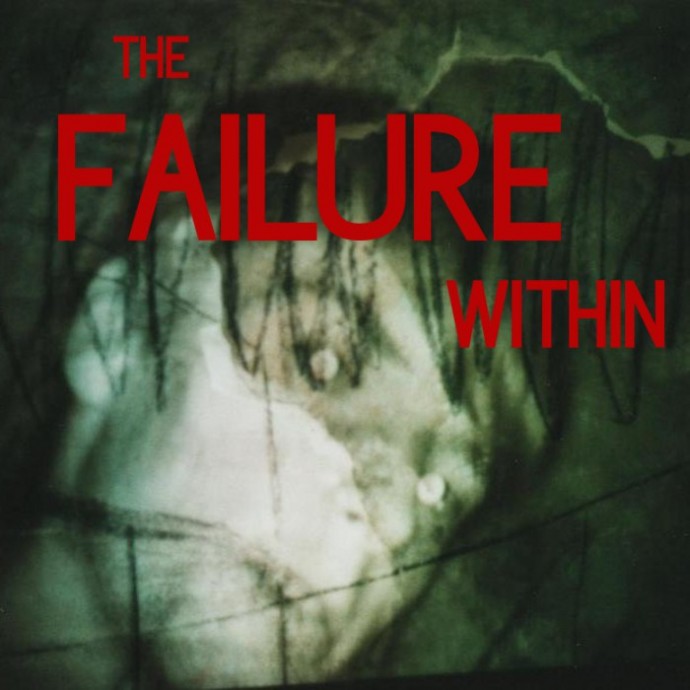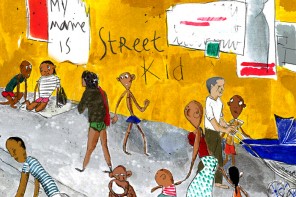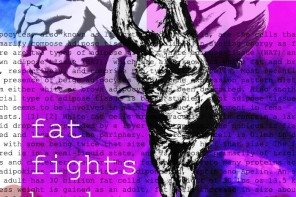Everyone knows the constant banter of what failure is, “Failure is not trying!”, “Failure is not getting back up again!”, “Failure is success if we learn from it!”. But there is much more idiosyncrasy habit to this black and white definition. Most of us have all carried the period of life with no money, constant job decline, loss of relations, and a perpetual questioning of one’s steps through life- feeling as if we are blind, being led by an invisible string. I wanted to know why we as humans, take the illusion of failure so seriously and why this colossal blunder can be turmoil on our consciences. What is the emotional and mental aspect of it all? It all seemed grey and bleak till a man´s stories put things into a different perspective. He has nubs for fingers on his right hand to pull the beer glass to cracked lips. The nicotine stained teeth compliments his face, scattered with aged craters and cracked skin. Above clouded blue eyes hang thick grey brows and creases from a once thoughtful forehead…
Failure these days is even…expected. The past two generations have been pleasured with ever lasting trials and errors. You, the young; we, the lived, are not born into this anymore. And what I mean about “born into this” is that failure is not an accident anymore. There is always that one rabbling old drunk at the end of the bar, spewing “knowledge” for the good of the people and for the good of his own sake; night, after night, whoever catches his wandering eye. But most of those drunks have not lived the life I once owned.
When I was a boy, perhaps about fourteen..fifteen years of age, I was a spectacular dancer. I was trained from the age of six by my mother, who was also, an established dancer in the south of Germany. She would take me to all the opera halls from Germany to Paris, drilling the delicate steps of thin legged girls and lean muscles of men into my mind. It was only natural for me. Didn’t every boy go to the opera halls with their mothers to indulge in the ravishes of dance? By twelve, my love and talent for dance blossomed into all of my mother’s highest expectations. Of course, my mates would tease and laugh at me as I grew into a teenager.
You see, the boys had fathers who were in construction and business. They went to work everyday with their velvet hats, thick wool vests, and golden chained watches hanging from their pockets. And I? I carried my thin worn dancing shoes and leotards. Nevertheless, my time came to audition at the National Theater in Munich. How long I had waited for this opportunity! How long had I wanted to show my mother, my peers, the world, that I, Josef Gärtner, had what it took to be the next…the next…I did not get in, you see, and it took me ten years to get over that disappointment. It ruined my teens and my early twenties, when everything should be so new and full of hope for an unseen world. I let that regret torture me, and that was the accident…I let regret finish my dreams. It forced all of it to a halt. I gave up. But after those years of demise I realized, that it had stopped. And then when this epiphany arose, I failed no more.
Failure is purely mental. The ending of means is itself in our self-criticism, egotism, and down right self-consciousness. The bitterness of demise is the reflection of oneself to others. So what makes people think, I am not a failure? What keeps people from walking into this place and think to oneself here is a man, lost, hopeless, without love and emotion? Why does this man dwell in self-pity and sorrow? Ah, but how young people are.
I had no father, you see. From the stories my mother told me at the time, he was an inventor who built a hot-balloon. He would spend months and months perfecting the thing, tying himself into the soft soil of the earth and floating high above the town, not coming down for hours at a time. Till one day, his rope split, and off he went..Never again did my poor pregnant mother see him. Only the rumors of a torn, bodiless balloon wrapped in the limbs of a birch tree on the borders of Switzerland returned home. Would you say my father failed? Failed in the resonance of death? Failed because his creation was not yet perfected while there was so much more to make his own? No..no. He fell in love through his end. The ties of his feet to the earth broke and he was free. He died free. You and I, will not be blessed with this release. I like to think my father cut the damn rope himself. You see, I am lost. I am not hopeless for I have no more need for hope. I have no love to give for my heart was taken long ago. I have lived it all already.I have lived, and I am still here, enjoying beer and talking to strangers. You are young. And soon through time, whether that be soon or not, you will realize that failure is a slow rise to cynicism. You think you have failed but you haven´t. As an individual, you have tried. It has something to do with them, not you, which is our own individual mistake for assumption. Never think you have reached a peak and that it only goes so far. Failure is regret and not releasing our ties to this worlds expectations.
We are all adaptable to failure. We are our own tormentors. Our construction is our destruction. We already know that the world mirrors how we perceive it. A whole new perspective on we, the living. Failure comes with experience, and success derives from the pits of our emotion.
I was a dancer. But now, I walk through the darkness and the smoke and through the cluttered floor of cigarettes and newspapers. I am limp and crooked, but once I moved with fluid motion as if I knew every corner of the earth. My back is bent and my steps are rigid, yet, I walk heel to toe and as if I was fifteen, auditioning at The National Theater in Munich.
“It has always seemed strange to me…the things we admire in men, kindness, and generosity, openness, honesty, understanding and feeling, are the concomitants of failure in our system. And those traits we detest, sharpness, greed, acquisitiveness, meanness, self-interest, are the traits of success. And while men admire the quality of the first, they love and produce the second.”
– John Steinbeck







